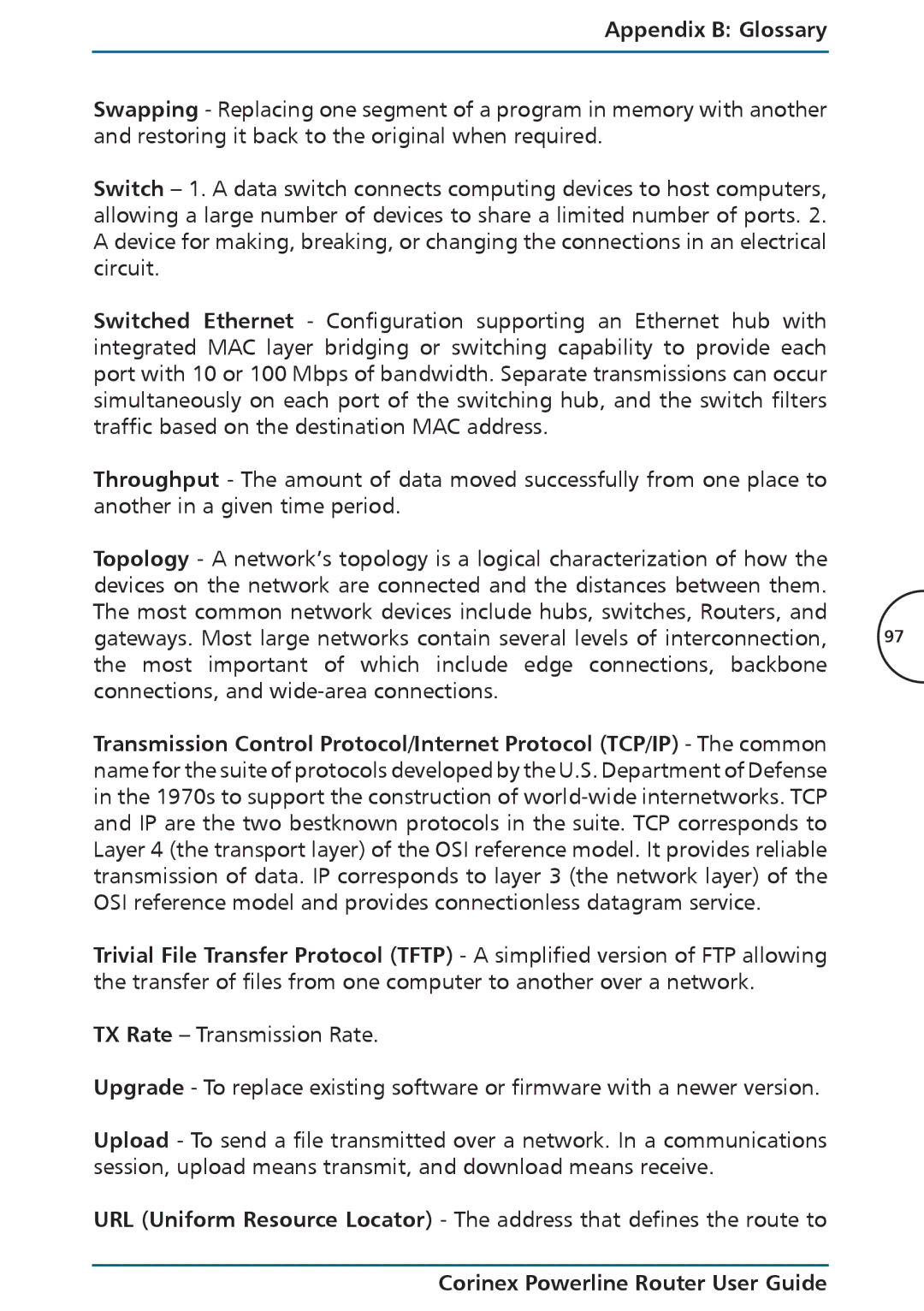
Appendix B: Glossary
Swapping - Replacing one segment of a program in memory with another and restoring it back to the original when required.
Switch – 1. A data switch connects computing devices to host computers, allowing a large number of devices to share a limited number of ports. 2. A device for making, breaking, or changing the connections in an electrical circuit.
Switched Ethernet - Configuration supporting an Ethernet hub with integrated MAC layer bridging or switching capability to provide each port with 10 or 100 Mbps of bandwidth. Separate transmissions can occur simultaneously on each port of the switching hub, and the switch filters traffic based on the destination MAC address.
Throughput - The amount of data moved successfully from one place to another in a given time period.
Topology - A network’s topology is a logical characterization of how the devices on the network are connected and the distances between them. The most common network devices include hubs, switches, Routers, and
gateways. Most large networks contain several levels of interconnection, 97 the most important of which include edge connections, backbone connections, and
Transmission Control Protocol/Internet Protocol (TCP/IP) - The common name for the suite of protocols developed by the U.S. Department of Defense in the 1970s to support the construction of
Trivial File Transfer Protocol (TFTP) - A simplified version of FTP allowing the transfer of files from one computer to another over a network.
TX Rate – Transmission Rate.
Upgrade - To replace existing software or firmware with a newer version.
Upload - To send a file transmitted over a network. In a communications session, upload means transmit, and download means receive.
URL (Uniform Resource Locator) - The address that defines the route to
